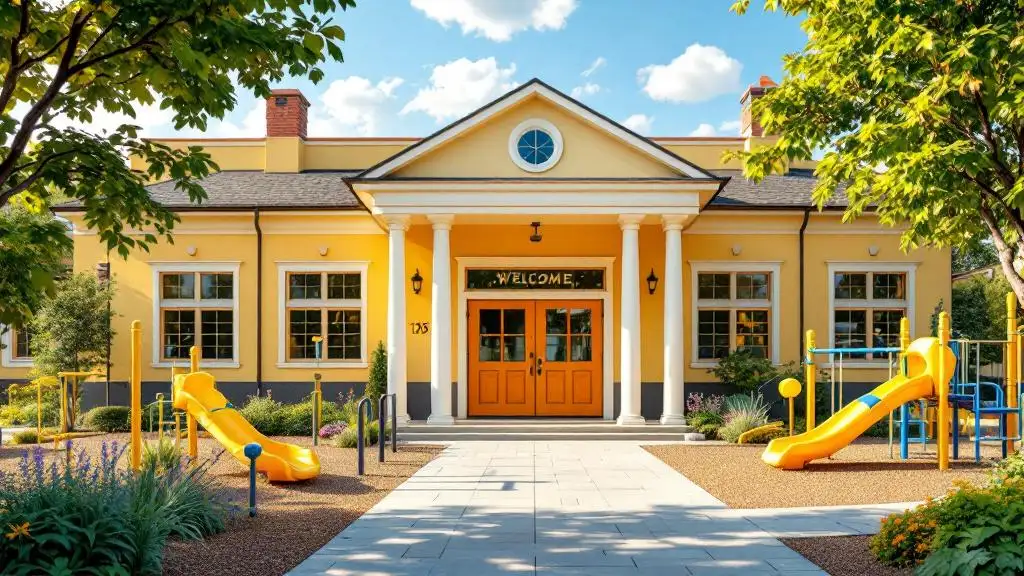Encouraging Positive Peer Interactions In School

The Foundation of Positive Peer Interactions
Fostering positive peer interactions is crucial for creating a supportive, inclusive, and engaging school environment. These relationships are not only essential for social-emotional development, but they also significantly impact academic success and overall well-being. This article explores effective strategies, practices, and insights to encourage meaningful peer connections among students across various age groups, from early childhood to adolescence.
Understanding the Significance of Peer Relationships in Education

What is the importance of positive peer relationships in schools?
Positive peer relationships are foundational to children's overall development and success in school. They encompass friendship, peer acceptance, and genuine connections that foster a sense of belonging. Such relationships are vital not only for social and emotional growth but also for academic achievement.
High-quality friendships characterized by care, validation, support, and conflict resolution help children navigate their social worlds effectively. Children who develop healthy peer bonds tend to feel more connected, confident, and resilient. This emotional support system encourages them to take risks, ask questions, and learn from mistakes in a safe environment.
In addition, peer acceptance plays a significant role in how students perceive themselves and their place in the school community. When students feel accepted and valued by their peers, they are more likely to participate actively and sustain motivation for learning.
Research shows that students with at least one good friend are protected from harmful peer behaviors, such as bullying and social exclusion. This friendship support boosts self-esteem and provides a buffer against negative experiences, which is crucial during adolescence.
Furthermore, positive peer relationships influence classroom climate by fostering collaboration, respect, and a culture of excellence. Engaged and connected students tend to perform better academically — some studies suggest peer interactions can explain up to 40% of academic achievement.
In educational settings, intentional strategies and activities—like group work, social skills training, and structured peer interactions—are effective in building these vital relationships. Front-line staff and teachers play a critical role in creating inclusive, supportive environments where students can establish meaningful social bonds.
Overall, cultivating positive peer relationships supports not only academic success but also the social and emotional well-being of students, forming the foundation of a healthy, dynamic school community.
Strategies for Promoting Peer Connections and Engagement

How do you promote positive peer interactions in schools?
Promoting positive peer interactions is fundamental for students’ social and academic growth. Schools can foster a welcoming environment where cooperation, respect, and belonging are prioritized. Creating opportunities for students to connect through structured activities encourages meaningful relationships.
One effective approach is implementing classroom routines that promote social skills. Teaching children essential behaviors like sharing, taking turns, and respectful communication helps lay a foundation for healthy relationships. Regular class meetings and group activities provide platforms for students to practice these skills in real-life contexts.
Incorporating specific activities designed to boost peer connections makes a noticeable difference. Activities such as 'Walk and Talk,' tiered mini-interviews, and digital quizzes engage students in fun, low-stakes ways to learn about each other and build rapport. These strategies encourage students to step outside their usual social circles and interact with peers they might not typically engage with.
Teachers play a vital role by modeling positive behaviors, providing constructive feedback, and reinforcing respectful interaction. Supporting students during both structured activities and casual moments helps embed social skills into daily routines. Early development of social skills through activities and consistent practice can lead to stronger peer acceptance, reduced loneliness, and overall improved wellbeing.
Creating a classroom culture that values collaboration and inclusivity not only enhances social connections but also fosters academic engagement. When students feel safe and supported, they are more likely to participate actively and take risks in their learning.
Classroom activities to foster social skills
School-based activities are instrumental in nurturing social and emotional skills. For example, morning meetings and role-playing scenarios teach children how to express feelings, resolve conflicts, and empathize with others. visual aids like posters can remind students of positive behaviors.
Using literature and current events in discussions encourages perspective-taking and respectful dialogue. Reinforcement systems, such as earning 'Superstars' for displaying kindness, motivate students to maintain positive interactions. Group activities that require students to memorize names or work together on projects further strengthen bonds and a sense of community.
Structured peer interaction practices
Structured practices provide a clear framework for students to develop peer relationships. The 'Walk and Talk' activity pairs students to answer social or academic questions while walking, promoting casual and relaxed interaction. Tiered mini-interviews allow small groups to categorize their comfort levels with peers and identify new classmates to connect with.
Digital tools also support social skill development. For instance, online quizzes can be fun and informative ways to learn about students' interests while fostering a relaxed environment for engagement. Assigning roles during group work ensures that each student contributes and feels valued.
Use of technology to enhance peer relationships
Technology offers innovative ways to strengthen peer bonds. Digital quizzes, shared online boards, and collaborative apps enable students to work together asynchronously or synchronously, encouraging communication and teamwork.
Online platforms can facilitate activities like virtual 'interest surveys' or collaborative storytelling projects, making peer interactions accessible beyond the physical classroom. These tools help students practice social skills in a modern context, preparing them for future digital collaboration.
By combining intentional classroom activities, structured practices, and technology, educators can create a dynamic, inclusive environment that promotes meaningful peer relationships. This approach supports students' social development and academic success, creating a school climate where everyone feels connected and valued.
Supporting Social Skills Development in Early Childhood

How can parents and educators support social development in early childhood education settings?
Supporting social skills in young children is a foundational step toward building positive peer relationships and fostering a sense of belonging. Parents and educators play pivotal roles in guiding and nurturing these skills from an early age.
One effective approach involves creating ample opportunities for unstructured play and collaborative activities. These activities allow children to practice sharing, teamwork, problem-solving, and friendship-building naturally. For example, setting up free-play sessions with diverse toys or role-play scenarios encourages children to interact and communicate.
Modeling positive social behaviors is equally vital. When adults demonstrate kindness, respectful listening, and conflict resolution, children learn by example. Consistent reinforcement of these behaviors helps internalize social norms and promotes cooperative interactions.
Incorporating culturally responsive storytelling and language-rich activities broadens children’s social understanding. Sharing stories from various cultures not only enriches vocabulary but also teaches respect for diversity. Conversations and questions that explore feelings and social situations foster empathy and emotional intelligence.
Partnerships with families and community resources strengthen social development. Schools can provide families with guidance on supporting social skills at home, especially for children from low-income backgrounds who might lack certain social opportunities. Community programs and resources can supplement school efforts by offering broader social engagement.
Finally, embedding social skill practices seamlessly into everyday academic routines keeps these strategies simple, sustainable, and effective. Activities like group projects, discussion circles, or shared responsibilities teach children to work together and resolve conflicts in real-time.
By adopting these strategies, educators and parents can create enriching environments that facilitate early social development, laying a strong foundation for positive peer relationships and overall well-being.
| Strategy | Description | Benefits |
|---|---|---|
| Unstructured Play | Providing opportunities for spontaneous peer interactions | Builds social skills, confidence, and trust |
| Role Modeling | Demonstrating respectful and caring behaviors | Sets behavioral expectations, promotes empathy |
| Culturally Responsive Activities | Using stories and discussions from diverse backgrounds | Enhances communication skills, cultural awareness |
| Family and Community Collaboration | Engaging with families for consistent support | Reinforces social skills across settings |
| Embedding in Daily Routines | Integrating social skill practice into learning activities | Encourages ongoing social learning without extra effort |
Fostering social skills early in life creates confident, empathetic individuals who are prepared to build positive peer relationships. This integrated approach benefits children’s social and emotional health, setting the stage for future success.
Building Inclusive and Respectful Classroom Climate

How can schools reduce bullying and promote inclusivity through peer interactions?
Creating a positive and inclusive environment in schools is essential for fostering respectful peer relationships. Schools can implement comprehensive social-emotional learning curricula that teach empathy, emotional intelligence, and prosocial behaviors. These lessons help students understand and value differences, building a foundation for kindness and respect.
Establishing clear norms and behavior guidelines is also crucial. When students participate in creating these standards, they develop a sense of ownership, which encourages adherence and promotes a respectful climate. For example, engaging students in discussions about what respectful behavior looks like and setting shared expectations helps embed positive social norms.
Whole-school approaches work best when staff, families, and students collaborate. Initiatives like kindness campaigns, anti-bullying policies, and diversity workshops demonstrate a collective commitment to inclusivity. Regular activities that emphasize celebrating diversity and encouraging understanding contribute to a culture where differences are respected.
Empowering students to intervene as bystanders is another effective strategy. Teaching students how to recognize bullying and safely support peers fosters a community of active responsibility. Supervision in high-traffic areas and providing resources like books, assemblies, and activities centered on kindness reinforce these values.
Addressing cyberbullying is equally important. Schools should have systems for timely reporting and responding to online harassment. Cyber-safety programs educate students on respectful online behavior and digital citizenship.
Overall, fostering a classroom climate where every student feels safe, supported, and valued reduces bullying and promotes inclusivity. A culture that encourages empathy and respect prepares students to build positive peer relationships and contribute to a caring school community.
The Role of Social-Emotional Learning (SEL) in Fostering Positive Peer Dynamics

How does social-emotional learning (SEL) contribute to developing positive peer bonds?
Social-emotional learning (SEL) is essential in creating healthy peer relationships in educational settings. It helps students acquire skills like empathy, emotional regulation, and effective communication, which are crucial for positive interactions. When students practice activities that build trust, respect, and active listening, they learn to understand and care for their peers, leading to more inclusive and supportive environments.
How does SEL help in building trust and cooperation among students?
Building trust is a foundational aspect of positive peer relationships. SEL fosters this by encouraging cooperation through group activities and discussions that promote shared goals and mutual respect. By experiencing success in collaborative tasks, students learn to rely on each other, strengthening their bonds and fostering a sense of belonging.
In what ways does SEL reduce negative behaviors like bullying?
SEL emphasizes social awareness and self-regulation, which are vital for reducing negative behaviors such as bullying and aggression. Students become more aware of others' feelings and are better equipped to handle conflicts calmly and constructively. Schools that integrate SEL tend to see a decrease in disruptive and harmful behaviors, creating a safer environment for all students.
Impact of SEL on student well-being and classroom culture
Incorporating SEL promotes emotional resilience and helps students manage stress more effectively. This, in turn, nurtures a classroom culture where students feel connected and supported. When students are emotionally prepared to relate positively, they are more likely to engage fully in learning and develop meaningful peer relationships.
| Aspect | Benefits | Practical Strategies |
|---|---|---|
| Empathy & Emotional Regulation | Enhances understanding of others' feelings; reduces conflicts | Role play, literature discussions, classroom discussions |
| Trust & Cooperation | Encourages collaboration and shared success | Group projects, cooperative games, morning meetings |
| Reducing Negative Behaviors | Minimizes bullying and aggression | Conflict resolution training, social skills focus |
Fostering a Culture of Connection and Respect
Creating a school environment that actively encourages and nurtures positive peer interactions requires intentional effort from educators, parents, and students alike. By implementing evidence-based strategies like social skills training, structured peer activities, inclusive practices, and social-emotional learning programs, schools can build a community rooted in trust, respect, and collaboration. Promoting a culture of kindness and acceptance not only cultivates healthier peer relationships but also enhances academic performance, mental health, and overall school climate. When everyone works together to support social development, students are empowered to develop lifelong friendships, resiliency, and a strong sense of belonging—fundamentals for a thriving educational environment.
References
- Positive Peer Relationships | Greater Good In Education
- Strengthening Peer Relationships in the Classroom - Edutopia
- Promoting Positive Peer Social Interactions
- How parents can help kids feel connected at school | ASU News
- Positive Peer Interactions in School-Age Programs—Frontline Staff
- Peer Collaboration in the Classroom - Evidence Based Education
- [PDF] Stories from the Field: Fostering positive peer relationships - ERIC